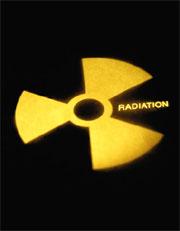 Safe storage of nuclear waste can take decades to implement. tab/440987aF1.html">Click here to see Nature 's previous roundup of different countries' plans.© Getty
Safe storage of nuclear waste can take decades to implement. tab/440987aF1.html">Click here to see Nature 's previous roundup of different countries' plans.© GettyBritain should take steps to join the ranks of countries planning to store nuclear waste deep underground, an advisory committee has told the government. Because any such plan will take decades to implement, the panel adds that politicians need to act on the committee's recommendations immediately.
The backing for 'geological disposal' comes from the Committee on Radioactive Waste Management, which has been considering various storage options since 2003. The process has not always been straightforward — two panel members left after accusing the committee of focusing on public opinion rather than science — but the findings, announced today, put Britain in line with international thinking on how such storage issues should be addressed.
Plans to create an underground storage facility are at an advanced stage in other countries such as the United States, where a site at Yucca Mountain in the Nevada desert has been studied for almost 30 years. Geological disposal plans are also under way in China, India and Finland, among others.
“What is needed now is the will to get the process moving quickly.”
Neil Chapman
University of Sheffield, UK
At Yucca Mountain, waste would be stored some 300 metres below the surface, in multilayered metal canisters that are designed to secure material safely for thousands of years. Several areas of Britain, such as parts of Wales and the Lake District in northern England, are considered geologically stable enough to host similar stores.
Get a move on
"The UK has been creating radioactive waste for 50 years without any clear idea of what to do with it," says Gordon MacKerron, committee chair and a science policy expert at the University of Sussex, UK. "We are confident that our recommendations provide the way forward."
But persuading local communities to host such a project could pose a more tricky challenge than the technical difficulties of waste disposal. A proposal to create a waste store at Sellafield, an existing nuclear power plant, was thrown out by a public enquiry in 1997. The committee says that a repeat will only be avoided if benefits such as economic investment can be used to persuade local people to partner with the government on any storage plan.
ADVERTISEMENT
MacKerron and other committee members warn that forging such a partnership is likely to involve many years of discussion, but that a robust interim storage solution is needed now. Most waste from Britain's 33 nuclear power stations is currently stored at the plants where it is produced. The safety of these facilities should also be reviewed, the committee adds — they need to be safe for at least 100 years in case of delays to long-term storage programmes such as geological disposal.
"It is good that they have recognized that this will be a long process and that most of the key decisions will be made by future generations," comments Neil Chapman, a geologist at the University of Sheffield, UK. "What is needed now is the will to get the process moving quickly."
Visit our urgedtostorenuclear.html">newsblog to read and post comments about this story.
University of Sheffield, UK
